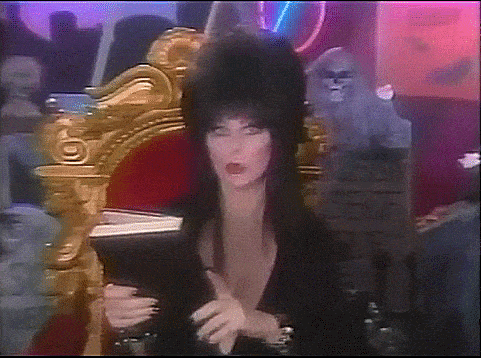Bhasttet - BHASTTET

More Posts from Bhasttet and Others
The Ethics of Witchcraft

Before you begin practicing witchcraft, it’s a good idea to establish a set of ethical guidelines for your magical practice. It’s also a good idea to familiarize yourself with some of the big ethical debates/controversies within witchy communities.
When you’re talking about ethics in witchcraft, it’s kind of impossible to get around Wicca. Even though not all witches are Wiccans, a lot of people are introduced to witchcraft through Wicca, and a lot of these people still follow Wiccan ethics in their craft, even if they don’t identify as Wiccan.
Wiccan ethics can be summed up with a single phrase, which is called the Wiccan Rede. The Rede states: “An it harm none, do as you will.”
Some people interpret the Rede to mean “If it harms none, do what you want.” I personally think this is a little over simplified. The key to understanding the Rede is understanding the difference between “want” and “will.”
In her book Wicca For Beginners, Thea Sabin says, “Want is about earthly things, both trivial and important. Your will, however, is the force that drives you to your ultimate spiritual goal. It transcends want. It’s the thing that Joseph Campbell is referring to when he says, ‘Follow your bliss.’ Campbell’s ‘bliss’ is the inner knowing that puts you on the life path that will lead you to your highest mundane and spiritual purpose.”
So your “will” isn’t just the things you want: it’s your hearts’ desires that are in alignment with your highest good.
Because of this, a better interpretation of the Wiccan Rede would be “If it harms none, do what is in alignment with your higher purpose.” I think this is a great guiding principle for any magical practice, whether you identify as Wiccan or not.
A lot of witches who follow the Wiccan Rede also believe in a concept called the Threefold Law. The Threefold Law states that whatever you put out into the world will come back to you three times.
Some people interpret this to mean that whatever you put out into the world will come back to you three times as strong. Others think it means that whatever you put out will come back to you on three levels: physical, emotional, and spiritual. Either way, the concept is the same: whatever you put out into the universe will find its way back to you in some form.
Even if they don’t believe in the Threefold Law, a lot of witches believe in a similar concept called karma, which comes from Hinduism. In his book Many, Many, Many Gods of Hinduism, Swami Acuthananda says: “The law of karma states that your thoughts, words, and actions — good and bad — circle back to determine your future. Simply put, you are responsible for your own actions. If you plant goodness, you will reap goodness, but if you plant evil, it will come back and hurt you. It is the universal principle of cause and effect.”
The Threefold Law and karma are similar concepts. No matter which one they resonate with, many witches believe that what they put out into the world will eventually come back to them. This is why a lot of witches choose only to do positive or constructive magic, and it’s why many witches don’t perform curses or hexes, because they don’t want that negativity coming back to them.

However, there ARE witches who do not follow the Wiccan Rede or believe in karma, and there ARE witches who cast curses and hexes. For example, Hoodoo is one magic tradition that doesn’t include any of these concepts, and many Hoodoo practitioners have no problem with destructive magic like curses. But at the same time, a lot of Hoodoo practitioners believe that a spell won’t work unless it is justified — so a curse won’t be effective unless the target deserves it. It really depends on the beliefs and morals of the practitioner. [Note: Hoodoo is a closed tradition. I am mentioning it in this post as a real world example of a pro-cursing magic system, but you do not have to practice Hoodoo to be pro-cursing.]
Cursing has a very long history all over the world. In Ancient Egypt, doctor-magicians treated patients by cursing the disease that was making them sick. In Ancient Rome, people would write curses on stone or lead tablets and bury them in the ground to ask the gods or spirits to carry out the curse — this is another case where the curse would only work if the gods felt it was justified. In ancient Ireland, poets could create a satire of someone, which was essentially a way of calling them out for doing something wrong. If the satire was true, it could cause blisters on the face of the person being satirized, or even cause their death. If the satire was not true, the curse would be directed back on the poet.
In most of these historical cases, it again seems like curses were only believed to work if the target deserved them, and there were serious consequences for cursing an innocent person. These are all things to keep in mind when deciding if you want to include cursing and other destructive magic in your practice.
Cursing is one of the biggest ethical debates in witchcraft, but there are others. Another big debate is whether or not it’s okay to do spells on other people.

A lot of witches choose not to do any magic that might violate another person’s free will. For example, a lot of witches will not do a love spell on a specific person. You can do a spell to attract a partner, or even to attract a certain type of person, but using magic to make someone specific fall in love with you violates that person’s free will.
For me, personally, consent is really important. If I want to do a spell for a friend or family member, even if it’s a helpful, positive spell, I only do it if they’ve asked me to or if I’ve gotten their permission. This way I know that my magic isn’t going against what they want.
Other witches feel like it’s okay to do helpful magic for other people without telling them about it. Most religious people don’t ask permission to pray for their loved ones, so some witches feel like they don’t need to ask permission to do positive spells for others. Again, it really depends on your personal ethics, but I’m of the opinion that it’s always best to have informed consent from everyone involved.
Of course, all of this is assuming that you choose to keep your witchcraft practice separate from your religious or spiritual practices. There are witches who choose to incorporate their spiritual beliefs into their magical practice. We’ve already talked about Wiccan ethics. A Christian witch will follow Christian ethics in their magic. An Muslim witch will follow Muslim ethics. A Buddhist witch will follow Buddhist ethics. And so on.
Before you start doing spellwork, you need to sit down and figure out your personal ethics. I recommend literally writing out a set of rules or guidelines for your ethical magical practice, before you ever cast a spell. You can refer back to those rules whenever you encounter an ethical question in your craft.





The Horror Hostess

P O N Y O - 2 0 0 8

Guess who’s coming for Halloween!

Fox Fenec watercolor ✨
You can follow me on Instagram like @bhastett, It's my firts illustration with watercolor I wish get comments and make It better 💞

-
 beenieweenie666 reblogged this · 5 months ago
beenieweenie666 reblogged this · 5 months ago -
 ryanthekiller12 liked this · 2 years ago
ryanthekiller12 liked this · 2 years ago -
 nmwi1772 liked this · 2 years ago
nmwi1772 liked this · 2 years ago -
 vampyrsonata liked this · 2 years ago
vampyrsonata liked this · 2 years ago -
 silver9mm reblogged this · 2 years ago
silver9mm reblogged this · 2 years ago -
 pogrzeb-serc reblogged this · 2 years ago
pogrzeb-serc reblogged this · 2 years ago -
 pogrzeb-serc reblogged this · 2 years ago
pogrzeb-serc reblogged this · 2 years ago -
 daianaramos liked this · 2 years ago
daianaramos liked this · 2 years ago -
 tallulahpulp liked this · 2 years ago
tallulahpulp liked this · 2 years ago -
 suzybannion reblogged this · 2 years ago
suzybannion reblogged this · 2 years ago -
 american-darkness reblogged this · 2 years ago
american-darkness reblogged this · 2 years ago -
 eternal-bummer liked this · 2 years ago
eternal-bummer liked this · 2 years ago -
 pandafromhell liked this · 2 years ago
pandafromhell liked this · 2 years ago -
 flavio42 liked this · 2 years ago
flavio42 liked this · 2 years ago -
 dietchilli reblogged this · 2 years ago
dietchilli reblogged this · 2 years ago -
 surethatsoundsgay reblogged this · 2 years ago
surethatsoundsgay reblogged this · 2 years ago -
 seraphpixie reblogged this · 2 years ago
seraphpixie reblogged this · 2 years ago -
 thepeopleater reblogged this · 2 years ago
thepeopleater reblogged this · 2 years ago -
 radreon liked this · 2 years ago
radreon liked this · 2 years ago -
 lucideye liked this · 2 years ago
lucideye liked this · 2 years ago -
 hr78jr liked this · 2 years ago
hr78jr liked this · 2 years ago -
 nectabechillin reblogged this · 2 years ago
nectabechillin reblogged this · 2 years ago -
 surethatsoundsgay reblogged this · 2 years ago
surethatsoundsgay reblogged this · 2 years ago -
 surethatsoundsgay liked this · 2 years ago
surethatsoundsgay liked this · 2 years ago -
 being-nsfw liked this · 2 years ago
being-nsfw liked this · 2 years ago -
 a-j-hendricks liked this · 2 years ago
a-j-hendricks liked this · 2 years ago -
 cuyahoga-balls reblogged this · 2 years ago
cuyahoga-balls reblogged this · 2 years ago -
 joetheonemanshow liked this · 2 years ago
joetheonemanshow liked this · 2 years ago -
 woah-look reblogged this · 2 years ago
woah-look reblogged this · 2 years ago -
 satanlikedmymoxie reblogged this · 2 years ago
satanlikedmymoxie reblogged this · 2 years ago -
 satanlikedmymoxie liked this · 2 years ago
satanlikedmymoxie liked this · 2 years ago -
 little-trash-mouth reblogged this · 2 years ago
little-trash-mouth reblogged this · 2 years ago -
 coralempress reblogged this · 2 years ago
coralempress reblogged this · 2 years ago -
 betaoctillery reblogged this · 2 years ago
betaoctillery reblogged this · 2 years ago -
 minusmii reblogged this · 2 years ago
minusmii reblogged this · 2 years ago -
 tyrannosaurus-mother-fucking-rex liked this · 2 years ago
tyrannosaurus-mother-fucking-rex liked this · 2 years ago -
 dickslasher3000 reblogged this · 2 years ago
dickslasher3000 reblogged this · 2 years ago -
 bigjoe9261 liked this · 2 years ago
bigjoe9261 liked this · 2 years ago -
 gahmo888 liked this · 2 years ago
gahmo888 liked this · 2 years ago -
 ninjapufs liked this · 2 years ago
ninjapufs liked this · 2 years ago
